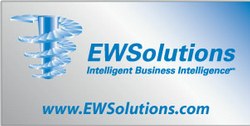EIMInsight MAGAZINE CURRENT ISSUE
Volume 1, Issue 1 - March 2007 Edition
Featured Articles
By Bill Burke
It is the responsibility of every person who uses, manages, collects and distributes data for personal or company use to guard that data from “escaping.” Likewise, the process of finding and using data must not be so cumbersome that everyone keeps their personal copy of the data and clogs their desk with mounds of paperwork or proliferates data throughout their company on desktops, servers or storage arrays.
Monthly Columnists
There appears to be a gross misunderstanding about Architecture, particularly in the information technology community. Many people seem to think that an implementation, an end result, is Architecture. To use an Architecture and Construction example, many people think that the Roman Coliseum is Architecture.
Read More…Enterprise information management is one of the hottest topics in information technology (IT) today. We have several clients that we are working with on meta data management efforts that are well beyond the scope of data warehousing and instead are targeting the entire enterprise. This is vital as these organizations have realized that in order to compete in the “Information Age” that they had better manage their information a whole lot more effectively than they have up to this point. These are the organizations that will really have a definitive advantage over their competition in the coming years.
Read More…Sustainability is a general term, usually associated with “green” initiatives, that address governance of our planet. It includes lowering emissions, reducing dependence on fossil fuel, providing stewardship of our forests and water supplies, minimizing waste, and improving the health of the global population. Wikipedia defines sustainability as “…an attempt to provide the best outcomes for the human and natural environments both now and into the indefinite future. It relates to the continuity of economic, social, institutional, and environmental aspects of human society, as well as the non-human environment.” “Sustainability affects every level of organization, from the local neighborhood to the entire planet.”
Read More…Many organizations have begun to realize that the data and information they create every day is a valuable enterprise asset. It is difficult to imagine any enterprise achieving its goals without pertinent information. Those with accessible and higher quality information will make more informed and more effective business decisions. This is as true for all organizations since all enterprises need quality information to guide their decision-making and to provide optimum service to their customers. For organizations whose primary asset is information, this need is even more critical.
Read More…Governance defines the way we manage, monitor and measure different aspects of an organization. There are governance programs for managing information technology, governance programs for managing people and other tangible resources, and there is data governance.
Read More…Welcome to this new column dealing with issues related to information quality and information management practices that impact information quality in organizations. In our conversations it is our hope that we will help you understand what constitutes good information quality and start you and your organization on a journey to improved information quality. We intend to discuss the root causes leading to poor information quality and practices that have been implemented in organizations around the world that deliver improved information quality.
Read More…






